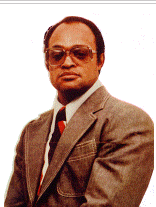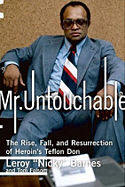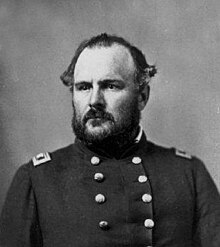Most movies that claim to be based on a true story fudge at least a little. There is an understandable need to compress events, or create composite characters to represent numerous real life individuals. They need to placate the egos of surviving family members and estate owners by offering a more flattering picture than, perhaps, is justified. “I Walk the Line” and “Ray”, for example.
Some fudge a lot. They add events or details that don’t correspond to any real events or details. They leave out rather significant events in order to give a far more flattering portrait than is deserved: “Marie Antoinette” and “Evita” for example.
And then there are movies like “American Gangster” that exist in a fantasyland of Hollywood “true story”, in which gangsters look like supermodels, and one heroic cop is so honest he wouldn’t take a light from stranger, and gee, gosh, you’re so glad that Denzel Washington– I mean Frank Lucas– got out of prison after only five years even though the movie shows him committing several cold-blooded murders, because he was just such a darn gosh nice guy and, after all, he ended up helping the government by turning in corrupt police officers. Didn’t he?
I’ve had people look at me and say, do you think Hollywood could get away with lies that big? Are you crazy?
Perhaps the worst offense of this film is the selection of Denzel Washington to play Lucas. There isn’t an ounce of evil in this portrait, even when he shoots people. It’s not impossible to play a drug lord or mafia kingpin as a three-dimensional character who might even be admirable in some ways– see “Goodfellas” or “The Godfather” to see how it’s done. But I doubt I’ve ever seen a worse performance in such a role ever. Washington doesn’t even come off as hard or mean enough to manage a car wash, let alone a network of drug dealers, corrupt cops, and junkies.
By the way, in real life, when his house in New Jersey was searched, among other things (including $500,000 in cash) that were found were about 200 pairs of ugly, ostentatious shoes belonging to… Frank Lucas.
Even worse, the movie suggests– well, actually, it slathers it across the screen– that there was something heroic in the deals Lucas cut in order to reduce his sentence in which he helped turn in his competition, and the corrupt cops that were taking money out of his profits. Allegedly.
The film wants it both ways. It wants you to believe that he was really, really bad, and actually murdered people. And then it wants you to admire Lucas so that you cheer for the reductions in his sentence so that he is released after serving five years! The movie pays lip service to the fact that the product that made Lucas rich, heroin, destroyed hundreds if not thousands of lives but it does it in such a way that those events remain, in the viewers mind, disconnected from the hero, Denzel Washington, who spends a good part of the film watching over events reasonably, calmly, why, even humbly.
I wonder if there is a film to be made in the life story of a petty drug dealer who, at the behest of his charming and fabulously wealthy domo, killed someone, got caught, convicted, sentenced to life in prison, only to see the guy who hired him get out after five years. Only to see the guy that hired him fink on his fellow dealers. Only to the see the guy that hired him meet the mayor, write a book, and attend a Hollywood premiere.
I’m not saying there is anything wrong with the finking. In fact, maybe a rational, sensible person would conclude that finking, on drug dealers, was the right thing to do, even if you were the king of the drug dealers. But the film doesn’t show Lucas doing it when there is abundant documentary evidence that he did, and Lucas, in interviews, claims he never finked on his own dealers– only on corrupt cops.
That is a relief. For a minute, I thought he was a crook.
Then we have Lucas’ rival and competitor, Nicky Barnes.

It would never do for a prosecutor to announce that he was recommending leniency for a drug dealer because, well, he’s just such a swell guy, and he’s good friends with Joe Louis and Frank Sinatra and throws fabulous parties (to which I have been invited, and at which I get to meet celebrities, and high-ranking cops, and other government officials), and when we talk about getting tough on crime, hell, we meant the dirty crime on the streets, the kind that gets its hair mussed, not this classy, refined, tasteful crime….
No, no. So instead you say, he cooperated. He helped the police. He gave them good information on other criminals. He became indispensable to our efforts to battle organized crime. I can’t show you an exact case in which he actually provided useful testimony in court, but I can assure you, blah, blah, blah….
I had to read this twice to believe it. It’s from Wikipedia:
Due to the efforts of Rudolph W. Giuliani and others he was released from prison in August, 1998 as a reward for his cooperation.
Then I realized– wait, wait– this is after all the real Rudy Giuliani, not the mythical Giuliani of his own imagination. In real life, Republican Giuliani is just helping out another corporate profiteer, a man much like himself, who benefits through the sufferings of others, the others who actually fight in Viet Nam, or work in a factory, or face criminals on the streets!
If you asked Nicky Barnes or Frank Lucas about Giuliani, they would tell you that he was a great guy, a straight talker, and an honest cop. Okay– you have two very, very serious criminals tell you that Giuliani is a great cop to them. Okay. Don’t raise any suspicions? But then you have Giuliani telling us that Barnes and Lucas are good guys now. Everything’s okay.
You may have seen interviews with Ritchie Roberts and Frank Lucas on the DVD in which they vouch for the accuracy of the film. In separate interviews later, Roberts lambasted the film for making Lucas out to be much nicer than he really was, and numerous other individuals from the film, including the wife of Bumpy Johnson, have also attacked the honesty of the film.
Why do they even waste our time with the bullshit “based on true story”?
Other Inaccuracies:
Ritchie Roberts did not have any children, so the court battle over custody obviously never happened. Frank Lucas, on the other hand, had “more than five” children, most of whom he completely neglected. He had one child with “Miss Puerto Rico”, who was not actually “Miss Puerto Rico” but homecoming queen. Those shots of Lucas presiding over those all-American Thanksgiving Dinners right out of Norman Rockwell? Frank Lucas used his family to run drugs for his personal material benefit. Why this scene suggesting paternalism, when the relationship was clearly one of exploitation.
Ike Atkinson, Lucas’ link to Southeast Asia, claims that he never put any heroin in military caskets– he only used furniture. Others have claimed that Lucas had the heroin stuffed into body bags with the bodies of dead soldiers– not as glamorous as the alternative shown in the movie. In any case, the stories about the caskets is weak, and not corroborated by anything other than Frank Lucas’ colourful imagination.
Ritchie Roberts actually played only a minor role in the takedown of Frank Lucas. The DEA did most of the work. The raid on Lucas’s house in New Jersey was the result of informants within the Mafia, not Roberts’s brilliant detective work.
Who did Frank Lucas turn in? According to the film, over 150 corrupt police officers. There doesn’t seem to be any public record of even a single police officer convicted of corruption based on testimony from Frank Lucas. However, according to articles in the New York Times, he turned in over 100 drug dealers– he was a snitch– and was placed in the witness protection program, along with his wife and daughter. And of course, had his sentence reduced!
Now, one more thing about that: the movie shows Lucas committing at least two cold-blooded murders, including one in which he has someone doused with gasoline and then sets him on fire. Amazingly, he is never charged with murder. Ritchie never brings it up. It is never discussed. It is never investigated, apparently. Lucas is released from prison after five years. (In real life, he went back in for seven years after that.)
Okay, so did he actually murder people? I have to conclude that Lucas makes these claims in his biography and while bragging aloud to people at parties, and then confides to the police that he is just bragging.
Need to sell books, you see.
Need to sell that Hollywood movie.
Another twisted hero: Joey Gallo, immortalized by Bob Dylan in the song “Joey” from the album Desire. Turns out Joey connected with Nicky Barnes in prison, because he wanted a conduit into Harlem for his heroin. He saw all those potential customers… people squandering their welfare checks on food and clothing and shelter… he just had to help them.
This gets better. When the New York Times decided to run a story on Barnes as “Mr. Untouchable”, they asked him to come in and pose for a picture. If he didn’t, they told him, they would run one of his ugly mug shots. Barnes showed up and the resulting picture conveyed a rather shocking level of arrogance for a criminal gang leader. It so offended President Jimmy Carter when he saw it that he ordered his attorney general to investigate.

So the Democrat gets tough on crime and the Republican goes soft. That’s easy to understand, actually: the Republicans have more in common even with the criminal rich than they do with the working class.
Debunking Lucas
The gross inaccuracies of this film reflect a more recent trend in Hollywood to take stories “based on fact” and then absolutely shamelessly alter them beyond all recognition because nobody seems to give a damn for the truth anyway. If you watch an older “based on a true story” film like “Dog Day Afternoon” or “Serpico”, you realize just how flagrant the fudging has become. The earlier films were positively dogmatic in comparison. Even “The French Connection”, which insisted it was only “inspired” by the story of “Popeye” Doyle, had more respect for the facts than “American Gangster”.



